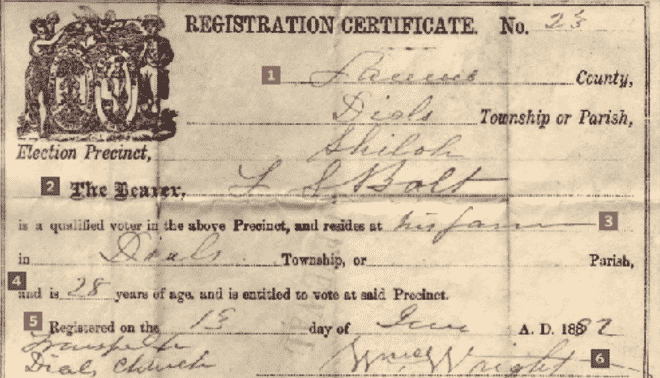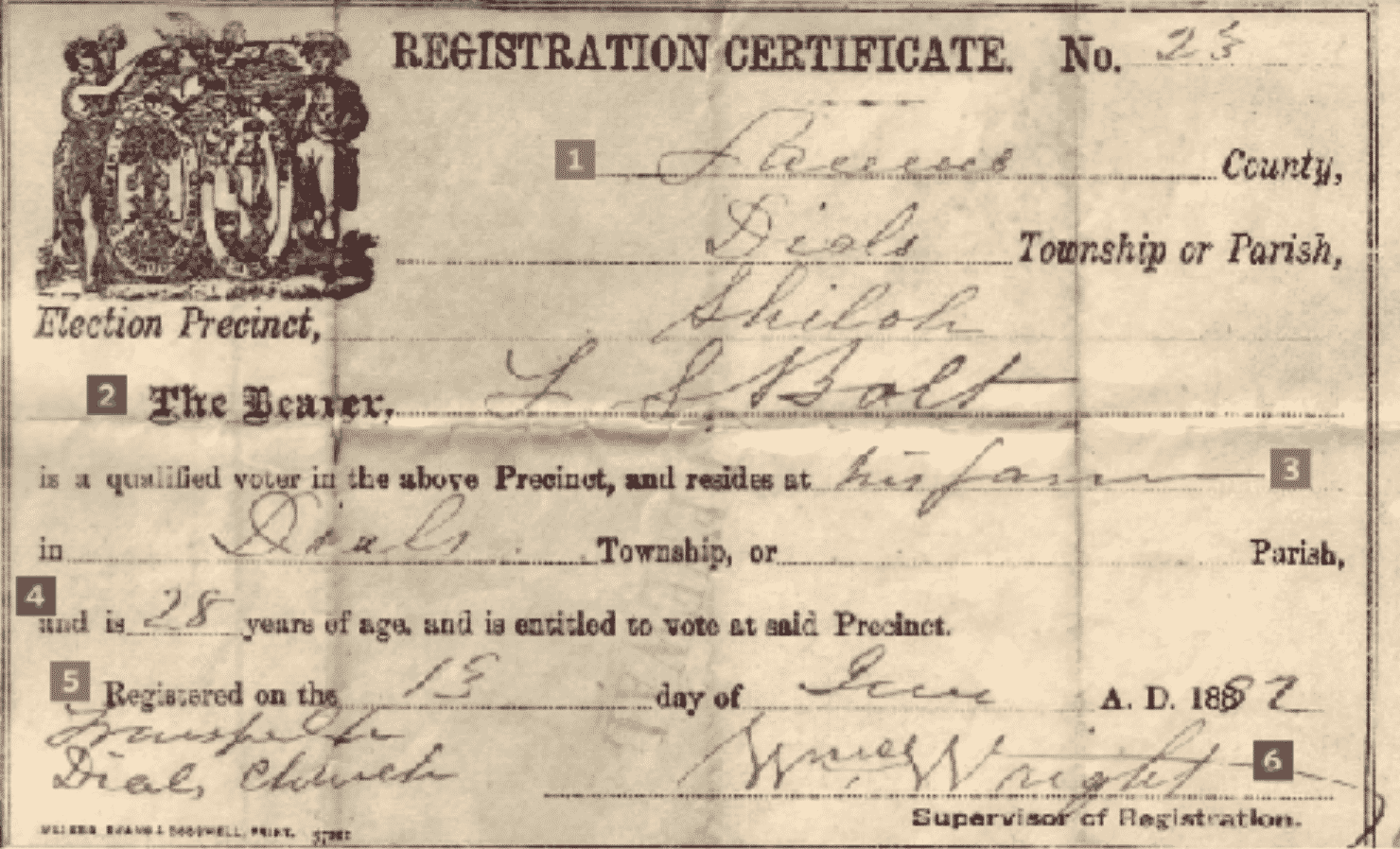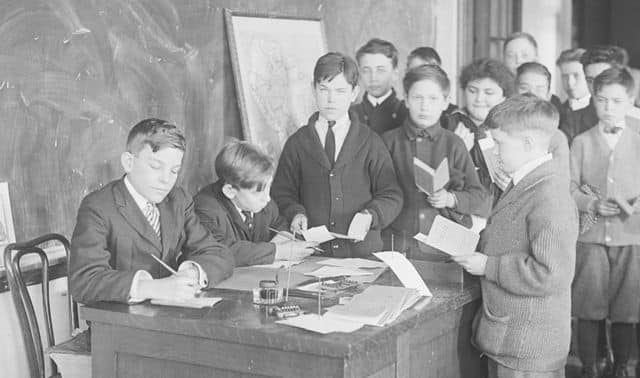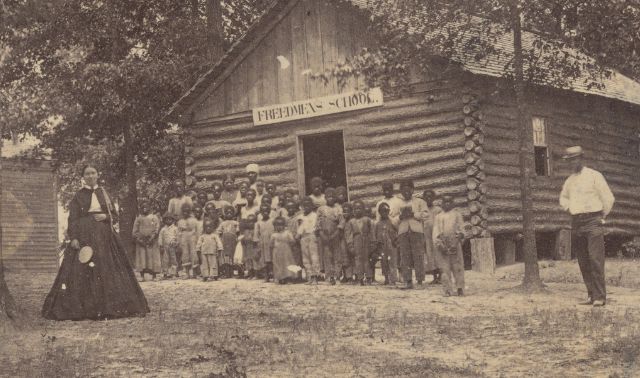Sign up for the Family Tree Newsletter Plus, you’ll receive our 10 Essential Genealogy Research Forms PDF as a special thank you!
Get Your Free Genealogy Forms
"*" indicates required fields

The right to vote is a cornerstone of our American civil rights. You can register in person to vote when you reach the legal age of majority. The state board of elections, a county supervisor of elections, or a voter registrar is responsible for reviewing and processing your registration. If you change residences, you must reregister to vote in the new location.
Voter registration lists, registration certificates and voter registration cards can provide valuable information for your genealogical research. First of all, a voter registration list or roll can provide another means of verifying the residence of a person between census years or in lieu of the lost 1890 census.
When your ancestors registered to vote, they provided proof of having met these requirements:
- must be a US citizen
- must be a permanent resident of the area
- must not have been judged mentally incapacitated in that or any other state
- cannot have been convicted of a felony without their civil rights having been restored
- must be able to prove name, date of birth and place of residence
If a person met the qualifications, a voter registration card was issued and his name was added to the roll of eligible voters for that area (often called a precinct, ward or parish).
When searching for your ancestors’ voter registration documents, don’t start with state-level offices. States may or may not hold copies of voter lists from each county or parish. But county and parish election officials maintain these documents long after the election year has passed. You will want to contact those officials to determine what records exist and how you can access them.
6 Things You Can Learn About Your Ancestor from Voter Registration Records
Let’s look at an example of a voter registration record to see what genealogical information they contain. Remember, the formats of voter registration forms and cards have differed from place to place and over time. Some older forms may not include much information about where the person was born, but the registrant will certainly have been asked for proof of birth to verify citizenship and place of residence. The example shown comes from Laurens County, SC.

1. Location
The county, township (or parish) and the election precinct are stated. This is the location where the person is authorized to vote. County election officials may be able to show you a map that will help put your ancestor into geographical perspective.
2. Name
The name of the voter is clearly shown.
3. Place of Residence
The voter’s place of residence is listed. This could be as simple as “his farm in Dials Township” or it might provide a precise street address. This information could point you to deeds, tax rolls and other evidence of the place where your ancestor lived.
4. Age
The age of the individual is usually included. Other voter registration examples may ask for the date and location of the person’s birth. I’ve even seen the naturalization certificate number and date of naturalization listed for foreign-born citizens—a great help in tracking down elusive naturalization records.
5. Timeline Clues
The date of registration, or the date of issue of the registration certificate or card, is always included. Election laws specify the last date by which a person could register to vote for a specific election, so this date was important to officials. For you, it documents a distinct point in time when the person was in that location.
6. Community Members
The signature of the person who acted as registrar authorizes the registration. If you’re researching the community where your ancestor lived, you may be interested in tracing this person to determine what other roles he may have played.
A version of this article appeared in the May/June 2012 issue of Family Tree Magazine.
Last Updated: August 2020
ADVERTISEMENT


